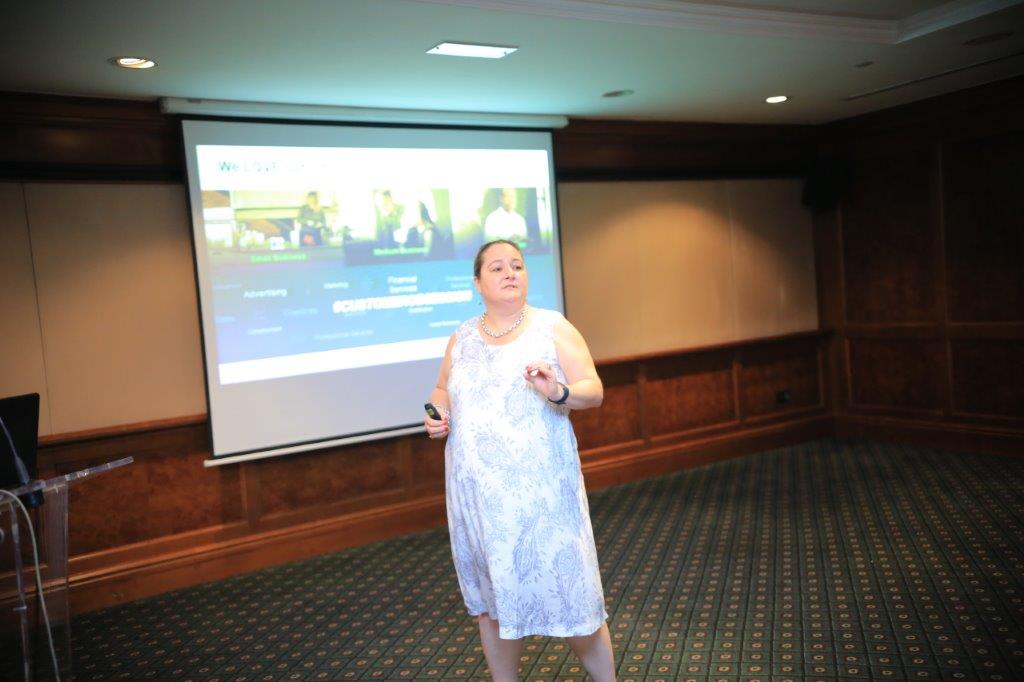advertisement
Sage spreads its enterprise solution to Ethiopia
With the overall aim of improving performance of businesses in Ethiopia through application of cost savings enabled by Enterprise Management…

With the overall aim of improving performance of businesses in Ethiopia through application of cost savings enabled by Enterprise Management Solutions (EMS), Sage East Africa recently hosted decision-makers and heads of IT from various public institutions and Addis Ababa based private sector led companies.
Enterprise IT Transformation
During a CIO East Africa Breakfast Series themed: Enterprise IT Transformation Nikki Summers, Regional Director Sage East Africa underscored the need for organizations to leapfrog their competitiveness by looking ahead instead of re-imagining the business by playing catch-up.
The opportunity to engage with Ethiopia’s market comes on the wake of recent announcement by the government to re-jig its developmental-state model lined to create more room for the private sector to bring in much-needed capital. The move calls for the country to embrace and start deployment of business solutions primed to sustain its promising growth.
advertisement
Though unexpected, the government’s announced radical development plans are set to for the first time open to foreign investors the opportunity to invest in state-owned telecoms, power, the national airline and railways. Other sectors queued for partial or full privatisation are sugar factories, industrial parks, hotels and some manufacturing firms. In September, the government lifted restrictions on the logistics sector, opening it up for joint ventures with foreign companies.
So how does Sage expect to add value to a country that is deliberately and steadily transforming by re-writing its developmental model in a very significant manner?
The timeliness of positioning Sage’s enterprise management solutions is premised on its sustain provision of enterprise-level business solution for service operations that enables and assists organizations with core financial and supply chain management functionality.
Justifying Sage’s partnership enterprise proposition with industry players in Ethiopia, Summers pointed out that by 2020 1.7 megabytes of new information will be generated every second for every human being – 44 zettabytes of data in the world – up from 4.4 zettabytes in 2015. In this regard, Big Data will be instrumental in shaping the growth and destiny of enterprises.
advertisement
While 95 percent of Fortune 1,000 businesses having undertook big data projects less than half achieved measurable results, a status that demonstrates an overwhelming opportunity for businesses.
In separate findings, Summers noted that according to Gartner’s recent Report only 15 percent of businesses have deployed big data projects to production while a study by Accenture established that 80 percent of enterprise executives stated – if a company does not embrace big data they will lose. Last year, Forrester predicted that global big data software market would be worth US $ 31 billion.
Even though the above points suggest the importance of big data, Summers says that: “Only about 10 percent of companies have established a “single source of truth” for their data, that is, unique storage spaces, or databases, for enterprise-wide data objects,”
According to Summers before a company is ready for big data they should self asses with the following questions: what would big data mean to my company? Do you really need it? Are you ready for the change it could bring? Even if you ready for it, can you afford it?
advertisement
The questions are meant to judge your company’s readiness to embrace big data which has a lot of myths around it.
Forrester’s Total Economic Impact study
Against this background, Sage commissioned Forrester Consulting to conduct a Total Economic Impact™ (TEI) study and objectively examine the potential return on investment (ROI) that service organizations may realize by deploying its Enterprise Management solution as part of Sage Business Cloud. The study provided prospects with a framework to evaluate the potential financial impact of the Enterprise Management solutions on their services’ organizations.
Forrester Consulting, reputed for providing independent and objective research-based services purposed to help leaders succeed in their organizations reviewed in Sage’s EM solutions in North America, Europe and Africa, with minor multisite operations globally.
To better understand the benefits, costs, and risks associated with this investment, Forrester conducted in-depth interviews with six Enterprise Management for Services organizations customers, each with at least two to three years of experience using Enterprise Management.
For this TEI study, Forrester created a composite Organization to illustrate the quantifiable benefits and costs of investing in Enterprise Management for Services organizations.
Based on characteristics of the interviewed customers, the Organization was a global, midsize services company that was using Enterprise Management for three years to enable its services process activities.
Key findings
The key findings by Forrester Consulting based on quantifiable benefits in composite organization using Sage’s Enterprise Management solutions experienced the following risk-adjusted present value (PV) quantified benefits totaling $1,590,128. It also established the following: –
- Accounting and financial management — labor savings for reporting: $149,211.
- Purchasing — materials and productivity savings: $355,122.
- Inventory management — reduced inventory levels: $348,159.
- Customer service — productivity improvements: $125,870.
- Sales management — sales discount savings: $492,397
- New features — supply chain and financial management productivity savings: $119,369.